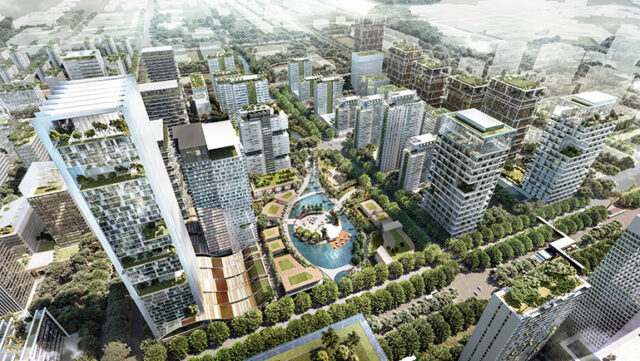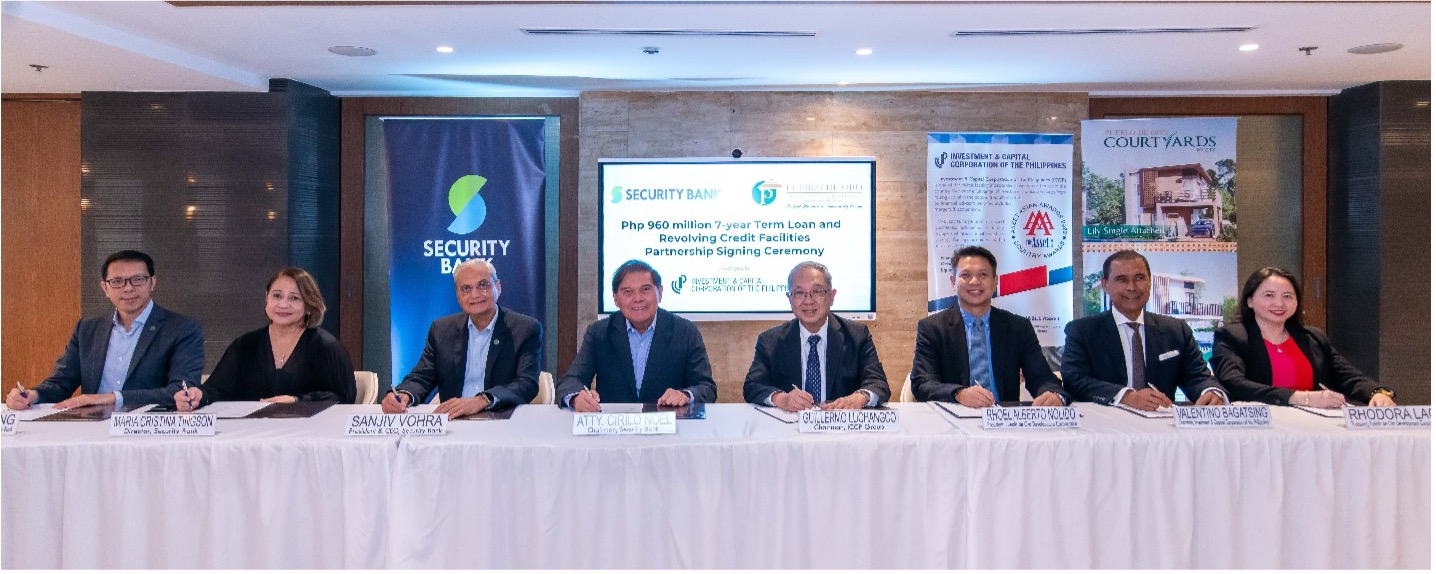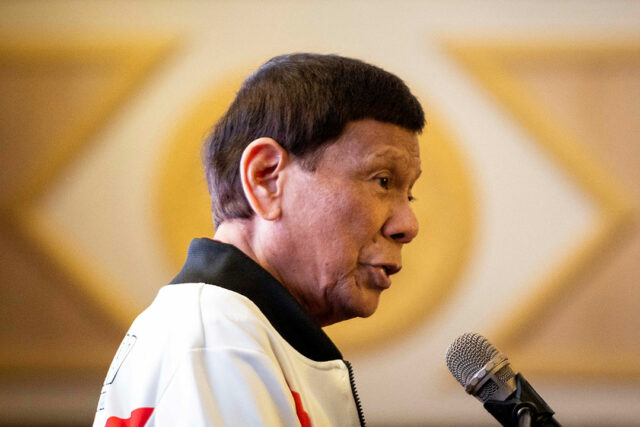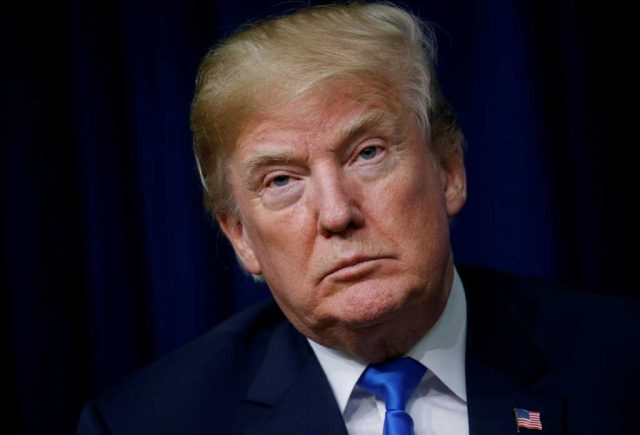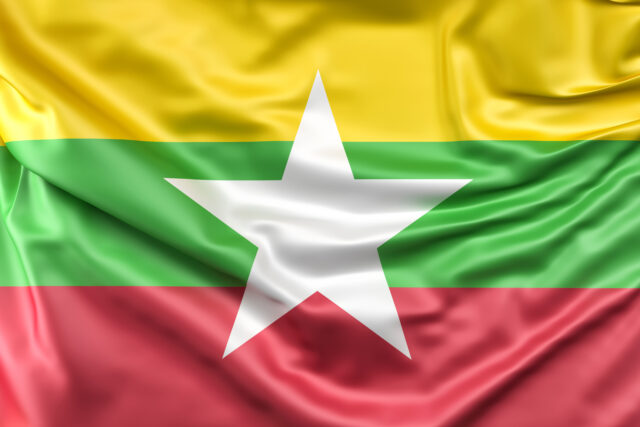Transforming Clark: How Filinvest and BCDA are shaping Clark’s future
By Mhicole A. Moral
Filinvest has long recognized the potential of Clark as a thriving economic center and has been a key player in its transformation. Through strategic partnerships with the Bases Conversion and Development Authority (BCDA) and its subsidiary, Clark Development Corp. (CDC), Filinvest has spearheaded large-scale developments that drive job creation and economic growth.
Since securing the contract in 2016 to develop and manage the former Mimosa Leisure Estate, Filinvest has steadily expanded its investments in the region in partnership with the BCDA and its subsidiary, CDC. In the same year, Filinvest also became the first mover in New Clark City through a joint venture with BCDA, leading to the creation of Filinvest New Clark City, anchored by its flagship development, Filinvest Innovation Park.
Clark’s location provides strategic access to air and sea travel, with a travel time of 1.5 to 4 hours to major Asian destinations. In 2023, Central Luzon recorded a 136% increase in visitor arrivals compared to the previous year, with Clark serving as a major entry point.
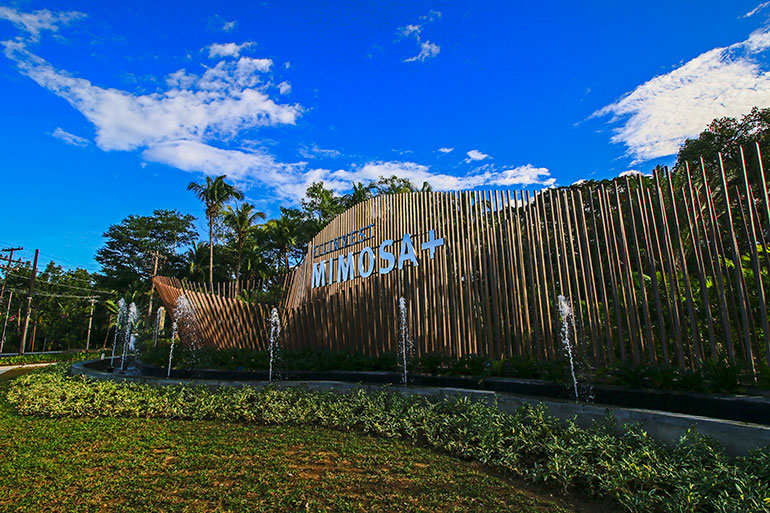
The location benefits from well-developed infrastructure and easy access to major transport networks. Just 80 kilometers from Metro Manila, it connects directly to the North Luzon Expressway (NLEX), Subic-Clark-Tarlac Expressway (SCTEX), and Tarlac-Pangasinan-La Union Expressway (TPLEX). Clark International Airport, which serves flights to Hong Kong, Taiwan, Singapore, Japan, and Korea, is just five kilometers away. Meanwhile, Subic Freeport Zone, one of Southeast Asia’s competitive international logistics ports, is 80 kilometers from the estate.
Several infrastructure projects are also expected to boost accessibility further. The North-South Commuter Railway (NSCR), for instance, will shorten travel time between Clark and Metro Manila, while the Subic-Clark-Manila-Batangas Railway and Central Luzon Link Expressway (CLLEX) aim to improve logistics and regional access.
Filinvest Townships Head Don Ubaldo said the company is committed to developing its Clark projects as a destination for business, leisure, and industrial expansion.
“We are the first developer to partner with the government for large-format townships in the Clark Freeport Zone and in New Clark City. We are committed to helping unlock further growth in Clark with our investments,” he explained.
Mr. Ubaldo highlighted that Filinvest’s developments in the region generate jobs and attract investments that drive continued growth.
“Filinvest’s projects affirm our confidence in Clark’s strength and future-readiness,” he said. “These developments not only create employment opportunities but also bring in investments that support long-term expansion, contributing significantly to the area’s economic progress.”
Developing a sustainable mixed-use destination
The 50-year lease agreement for the 201-hectare Filinvest Mimosa Plus Leisure City marked a key step in Filinvest’s plan to turn the estate into a major hub for business, leisure, and tourism. Filinvest has redeveloped the estate with modern facilities while preserving its historical character and natural surroundings.

The area houses the first GEO-certified Mimosa Plus Golf Course in the Philippines, recognized internationally for its commitment to sustainable golf course management. This 36-hole course attracts both local and international players, further positioning Clark as a premier destination for tourism and leisure.
Beyond the main course, the Mimosa Golf Clubhouse also features a Golf Academy and Driving Range, offering professional training and practice facilities open to all—whether seasoned golfers or beginners looking to refine their game.
Beyond leisure, Filinvest Mimosa Plus caters to upscale and mid-range markets with premium residential developments. The Crib offers affordable living spaces catering to urban professionals, while Golf Ridge Private Estate, under the Filigree brand, introduces luxury country club living beside the golf course. These projects contribute to Clark’s growing real estate market and drive property values.
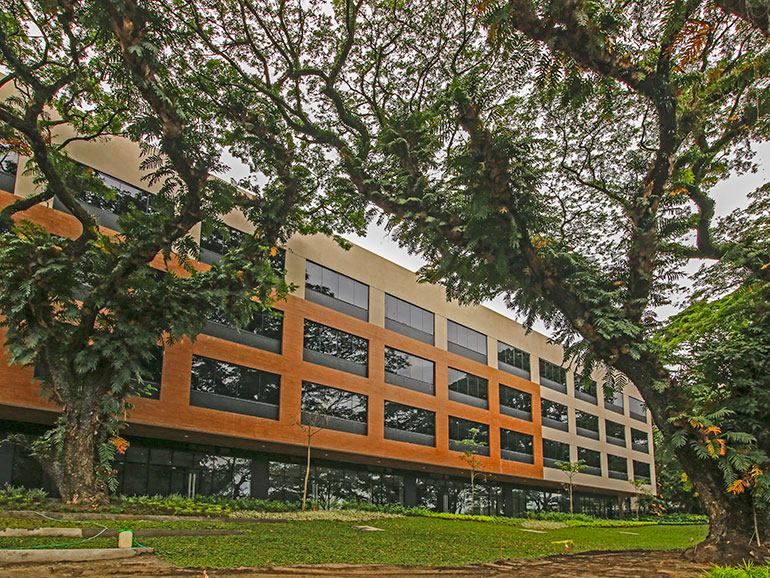
Workplus, a premium office campus spanning four hectares, is another major development of Filinvest. It currently has three office buildings, 1Workplus, 2Workplus, and the newly completed 4Workplus. Filinvest aims to expand the area with two more office buildings in the future.
Retail and entertainment options are also in the pipeline. Filinvest Malls Mimosa is set to open towards the end of 2025, while Filinvest Shoppes Mimosa is scheduled for launch in the third quarter of the same year.
For corporate events and special gatherings, The Hilltop offers function spaces suited for conferences, meetings, and gatherings. The estate also serves the growing MICE (Meetings, Incentives, Conventions, and Exhibitions) sector, providing an alternative to Metro Manila’s event venues.
Aside from these infrastructures, Filinvest Mimosa Plus promotes community engagement through events such as bike clinics, marathons, and Eats by the Park, an outdoor food market.
“Filinvest Mimosa offers year-round business and leisure amenities where you can experience country-club living amidst nature,” Mr. Ubaldo noted. “This project perfectly aligns with CDC’s mission to elevate Clark into a premier business and tourism hub and a catalyst for growth in the country.”
Hub for innovation and development
Filinvest is developing a 288-hectare mixed-use district within New Clark City, designed to be a modern and sustainable urban center in Central Luzon. This expansive development, known as Filinvest New Clark City, integrates residential, commercial, industrial, and institutional zones to foster a dynamic and well-balanced community.
At the heart of its industrial component is Filinvest Innovation Park, a dedicated hub for light and specialized industries. Positioned to meet the evolving demands of the new economy, the park serves as a strategic base for companies in e-commerce, data centers, and emerging technologies.
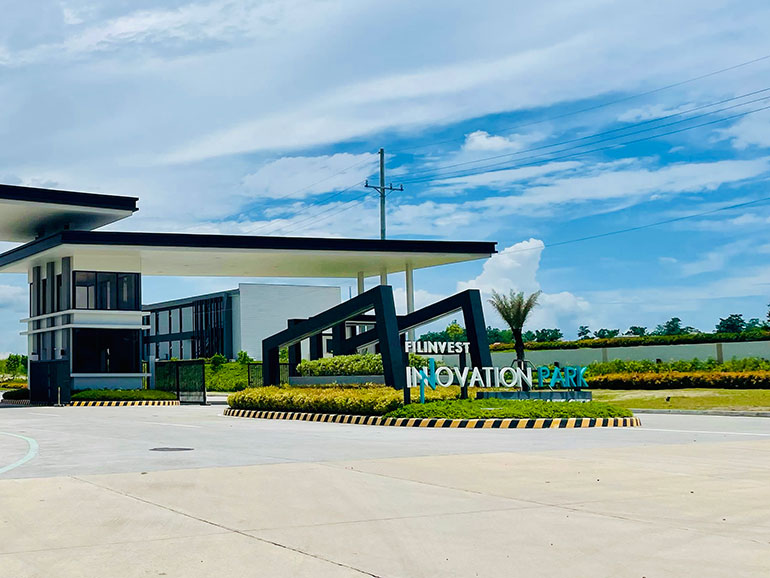
One of its key developments is the StB Giga Factory, set to become the first lithium iron phosphate battery manufacturing plant in the Philippines. Located within Phase 1 of Filinvest Innovation Park, this facility is expected to play a significant role in the renewable energy sector by producing advanced battery technology for various applications.
“Central Luzon remains a viable and competitive manufacturing and industrial hub outside the CALABA (Cavite-Laguna-Batangas) area,” said Mr. Ubaldo. “This provides an opportunity for Filinvest to expand its locator portfolio within Filinvest Innovation Park while also activating the mixed-use component of Filinvest New Clark City to support its growing community and the NGAC (National Government Administrative Center).”
Filinvest’s vision for New Clark City reflects its commitment to creating an integrated urban landscape. As part of this development, the company aims to secure Leadership in Energy and Environmental Design (LEED) certification, reinforcing its dedication to sustainable and energy-efficient building practices.
Aligned with the BCDA’s priorities, Filinvest incorporates environmental, social, and governance (ESG) principles through its sustainability framework, ensuring that its developments are not only progressive but also environmentally responsible.
Valuing significant partnerships
Beyond property development and hospitality, Filinvest has expanded its presence in the region through strategic infrastructure investments. One of its key ventures is its participation in the North Luzon Airport Consortium, which secured the bid to operate and maintain Clark International Airport.
Filinvest Development Corp. (FDC) plays a leading role in the consortium under Luzon International Premier Airport Development Corp. (LIPAD), a joint venture with JG Summit, Changi Airports Philippines, and Philippine Airport Ground Support Solutions. As the managing entity of Clark International Airport, LIPAD enhances the airport’s operations and services, strengthening its role as a major gateway in Central Luzon.
With its expanding footprint in Clark and New Clark City, Filinvest is playing a vital role in transforming the region into a premier destination for business, industry, and tourism. Through strategic partnerships with BCDA and CDC, the company continues to develop world-class townships, sustainable industrial parks, and integrated communities that enhance economic opportunities and improve quality of life.
As Filinvest Mimosa Plus and Filinvest New Clark City take shape, investors, businesses, and residents can look forward to a future driven by innovation, connectivity, and sustainability. Stay updated on the latest developments by following their official Facebook pages: https://www.facebook.com/FilinvestMimosaPlus/ and https://www.facebook.com/FilinvestNCCOfficial/.
Spotlight is BusinessWorld’s sponsored section that allows advertisers to amplify their brand and connect with BusinessWorld’s audience by publishing their stories on the BusinessWorld Web site. For more information, send an email to online@bworldonline.com.
Join us on Viber at https://bit.ly/3hv6bLA to get more updates and subscribe to BusinessWorld’s titles and get exclusive content through www.bworld-x.com.

